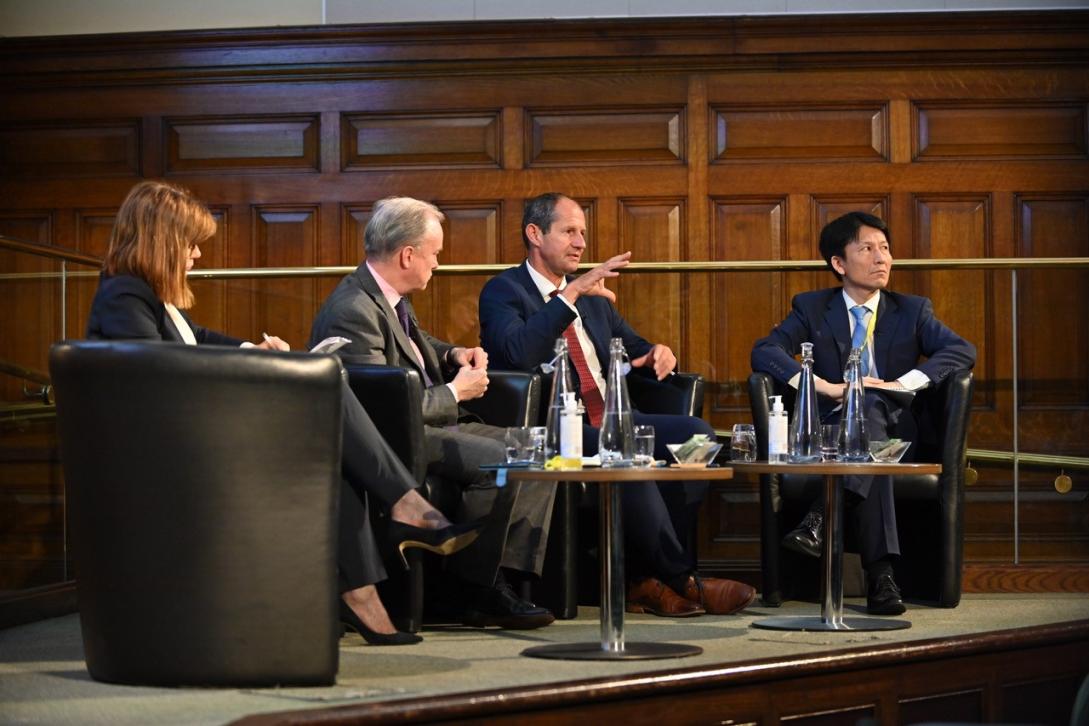Collective responses to foreign information manipulation and interference – London conference

|
The EU Ambassador to the UK, Pedro Serrano, opened the conference by highlighting the importance of countering information manipulation against the backdrop of terrible developments in Ukraine and the Middle East. He outlined the work of the EU, which in collaboration with international partners in the G7 framework, NATO, civil society organisations, academia, journalists, media and the private sector, developed a thorough understanding of the methods used to manipulate and interfere, as well as specialised tools to disrupt any maligned activities. Ambassador Serrano also stressed the need for international cooperation and respect for fundamental rights, freedom of expression and freedom of media, in particular. Ambassador Serrano said: “Combatting disinformation only makes sense within democratic societies. Those societies where freedom of speech and thought are not respected already live in a world of disinformation. Democracy is our major strength. It is the plurality of views that allows us to distinguish true from false.” Following the Ambassador’s remarks, Irène Mingasson, Head of Rapid Response Europe, Asia and Americas Unit of the Foreign Policy Instruments, elaborated on EU efforts in fostering and strengthening partnerships, including with the UK, to tackle FIMI. The magnificent Grade II listed Edwardian building of One Great George Street in central London gathered a large specialist audience eager to discover more about the threat of foreign information manipulation and interference during the four-panel event. In the first panel, Liubov Tsybulska, a Ukrainian expert in hybrid threats and strategic communication, gave an overview of the situation in the country and outlined new lessons, learned in the last months of the war, including new and evolving techniques used to spread disinformation. She also warned of new challenges in future, including around elections. Krisztina Stump, Head of Unit in charge of combatting online disinformation at DG CNECT at the European Commission, presented the EC’s approach to fight disinformation through the EU Code of practice on countering disinformation. The Code now counts among its signatories major online platforms, emerging and specialised platforms, players in the advertising industry, fact-checkers, research and civil society organisations. It constitutes the foundation of the industry’s response to disinformation. The signatories commit to demonetise the dissemination of disinformation, to ensure the transparency of political advertising, to empower users, to enhance cooperation with fact-checkers, and to provide researchers with better access to data. Session two of the conference explored the EU’s and the UK’s approaches to countering FIMI. Rachael Goodwill, Deputy Director and Head of Counter Information Manipulation Department at the Foreign, Commonwealth and Development Office gave a comprehensive overview of the British government’s efforts in tackling disinformation by among others building up evidence, exposing tactics and tackling networks. Lutz Guellner, Head of Division, Strategic Communication, Task Forces and Information Analysis of the European External Action Service brought attention to the fact that disinformation is not only a communication problem. He presented the four pillars of the EU’s work on countering FIMI: situational awareness, resilience building (in our societies and communities), regulatory approaches (not everything can be regulated and the freedom of speech needs to be protected) and international cooperation (disinformation is a global challenge to various nations all over the world). Lutz Guellner said: “Disinformation is like a bullet that hurts. This is what we see. However, there is machinery behind it that is invisible. This is what we need to expose and tackle.” During the third session, leading researchers discussed how audiences get exposed to FIMI and solutions to countering it. Richard Fletcher, Director of Research, The Reuters Institute for Journalism, Oxford University presented research insights based on empirical data showing that exposure to quality journalism makes people more resilient to false narratives. Ben Nimmo, Global Lead, Threat Intelligence at Meta explained that his data analysis shows false narratives take time to establish and the spread among audiences is not always guaranteed. Carl Miller, Research Director, Centre for the Analysis of Social Media at Demos and Viktors Makarovs, Special Envoy on Digital Affairs at the Latvian Ministry of Foreign Affairs focused on strategies to disrupt the communications chains of perpetrators of FIMI. In Mr Miller’s view, it is important to introduce chaos at technical level. Mr Makarovs added that politicians too need to reflect on tools to disrupt malign campaigns. During the final panel, international partners from the EU, UK, Canada and Japan elaborated on the next steps that the international community could consider to strengthen collective responses to FIMI. Tara Denham, Director General, Global Affairs, Canada, outlined the work of the G7 Rapid Response Mechanism focused on information sharing and analysis and on identifying opportunities for coordinated response. Ms Denham identified tools and techniques such as: knowledge and capacity building at national and international level, data analytics, but also – G7 safeguards for democratic values and institutions. At the end of the conference, Alex Aiken, Executive Director of the UK’s Government Communications, Lutz Guellner, and ISHII Hideaki, Director for Public Diplomacy Strategy Division, Ministry of Foreign Affairs, Japan, deliberated on the role of public education, media literacy, support for independent journalism and the need for resources, structures, and capabilities to tackle FIMI. |





